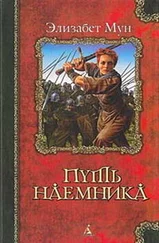“Mmmm. Muh… eh… luh… nuh.”
“Rank! Say your rank!”
“Ssss… uh… ahh… juh…”
“What day is it?” No answer. Of course, Gossin thought, he could not answer. None of them could. They had been kept isolated, away from sunlight or dark, calendars or clocks. She had no idea how long she’d been here, what day it was, what time of day it was. It wasn’t McLenard’s fault—and besides, he was drugged. Couldn’t the committee tell that?
“Doctor, let’s see him walk.”
“He doesn’t walk without support.”
“Let’s see, anyway.”
The two men levered McLenard up to a standing position; he was clearly unsteady. One took each arm, and the voice Gossin identified as “the doctor” urged him to walk forward. His gait was weak, unsteady; he needed the support of both men to keep him from falling, and after seven or eight steps they half carried him back to the float chair.
“Doctor.” That was the sergeant major. “Has he had any medications that would produce this effect?”
“No. He is on a mild sedative to prevent self-injury—” The doctor lifted McLenard’s arm, pushed up the sleeve of his robe, and showed a linear scab. “He picks at his arms if we don’t either sedate or restrain him. But nothing that would cause ataxia or the kind of mental deficit he shows.”
Gossin wanted to scream Liar at him, but she was afraid of what they would do to her. She had had drugs that morning; she could feel them fogging her brain, though not as much. She knew the implant they’d put in her head could administer drugs as well.
“And your prognosis, Doctor?”
“Sergeant McLenard will not improve. He will require permanent custodial care for the rest of his life.”
“Thank you. When you are ready, we will continue with… uh… Sergeant Chok.”
Chok was able to give his name, rank, and serial number, though in a monotone mumble.
“What is the date, Sergeant Chok?”
“Dun… dunno, sir. Don’t have calendar. Clock.”
“They do,” the doctor’s voice interrupted. “There’s a calendar in the day room. Clocks in their quarters. They don’t seem to understand them, though staff try.”
“Yes, we’ve seen the images of their quarters, Doctor. I understand. Not oriented to time, then. Sergeant Chok, do you know where you are?”
“Where? Can’t see out.”
“Do you know what kind of facility this is?”
“Issa jail,” Chok said.
The committee members looked at one another for a moment. The sergeant major said, “A jail? No, Sergeant, it’s a hospital. Because you’re sick.”
“No windows. No vids—”
“Of course there are vids,” the doctor said. “You’ve just forgotten them.” He turned to the other man. “Help me, here. Time to show them how he moves.”
Chok, released from the straps, made an attempt to stand but needed help. He took a few tottering steps, tried to shake his arm free of the doctor’s firm grip, but then his foot slipped on the floor. Gossin saw a shiny place, as if a smear of grease was left behind.
“He’s getting agitated,” the doctor said. “Come on, now, Sergeant, let’s get you back in your chair before you fall and hurt yourself.”
Gossin rubbed her slippers on the footrest of her chair. They were slick, and the floor was polished, gleaming.
“I’d like to talk to him alone,” the sergeant major said.
“Now, you know what we were told,” the chairman said.
“I know what we were told but that man could as easily be drugged as actually demented. I want to see his actual room.”
“Are you prepared to go through both the entrance and exit decontamination, gown up in one of these suits, and spend at least nine days in quarantine?” asked the doctor. “Because that’s what it will take to allow you closer contact with any of these cases. We’re not going to have you spreading this pathogen—”
“If it is a pathogen.” The sergeant major was clearly angry.
Gossin tried to catch her eye, but the sergeant major was focused on Chok, now swaying in his seat as they refastened his restraints. She saw the doctor slip something into the pocket of his yellow suit. Had he already dosed Chok again? And would they dose her again, before it was her turn to be shown off to the committee as a hopeless case? Her stomach roiled, fear and drugs combining.
The chairman turned to the sergeant major, also clearly angry. Both had their hands over the mike pickups, so Gossin heard only muffled phrases that seemed to be an argument about whether the staff might be lying about the “cases” and whether the sergeant major was risking something—probably being ruled out of order.
When that was over, the sergeant major was silent, lips compressed, expression grim then fading to blank. Gossin knew that expression well: the defense of the outranked when the senior was wrong but, for the moment, unstoppable. She had used it herself to escape worse trouble. As the chairman picked up another of the folders, and the others shifted in their chairs, the sergeant major looked at Gossin, a long considering look. Gossin looked back, hoping her face conveyed her fear, her concern. She blinked twice, deliberately.
The sergeant major blinked back, twice. Gossin blinked three times quickly, three times slowly—and twitched as the attendant’s hand clamped on her shoulder. “Are you feeling bad, honey?” came the voice she hated. “Need a little pain med, do you?” And a sharp sting in the back of her neck.
Her head was already dipping forward but she was almost sure she had managed the last three quick blinks.
—
Sergeant Major Sonja Morrison said nothing more during the rest of the presentation. Staff Sergeant Elena Maria Gossin had tried to send her a message. She’d known Gossin before Gossin made staff sergeant, before she herself became sergeant major. Gossin had chosen Spaceforce; Morrison had chosen Surface Warfare, because she’d had her eye on the position she now held, and everyone knew that nobody made sergeant major unless their duties were firmly tied to the planet’s surface.
And she, Sonja Morrison of Esterance on Fulland, knew that the current Rector of Defense had been equally tied to the planet’s surface, and had actual combat experience in surface warfare. Long ago, and not that far away from Morrison’s own background, in the misnamed war that the schoolbooks had whitewashed. The loose strings left behind still acted as fuses to buried political ordnance. Time to look for a string, and yank it as hard as possible, because sure as stingfish were stingfish, her people— enlisted people were all her people—were being mistreated by someone, and it had better not be the Rector of Defense for some stupid political reason.
She had seen desperation on Gossin’s face, seen the quick blinking of her eyes, seen the attendant reach out, grab her shoulder, and put a hand to the back of her neck. They were drugged. They were all drugged, and the demonstration was a sham, the whole thing playacting to excuse this—this hideous injustice perpetuated on innocent personnel. She had thought so on the other clinic visits, but now she was sure.
Her gramma had always said the Vattas were dangerous, but wouldn’t say why. Well, a certain Vatta, or several, would find out that a Morrison could be just as dangerous.
If she made it back to Port Major without being drugged herself. She had pulled on the bland face, so often practiced, that gave nothing away, pinged her implant to regulate heart rate, respirations, the levels of stress hormones in her blood so that her sweat wouldn’t give her away. When the time came for final comments, she acceded to the suggested verdict with a pleasant little smile, allowing her voice to express only sadness that such a tragedy had occurred.
Читать дальше












